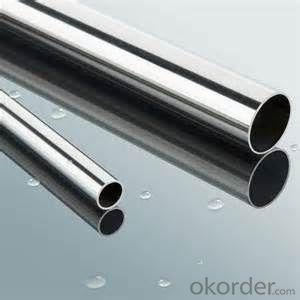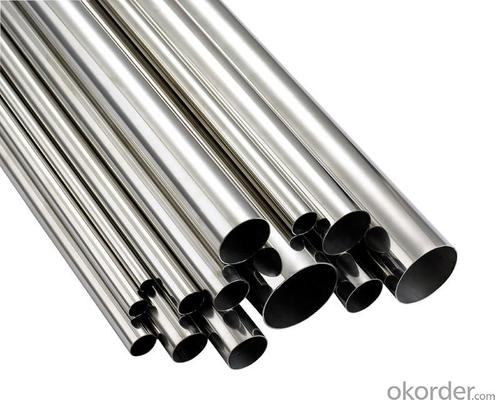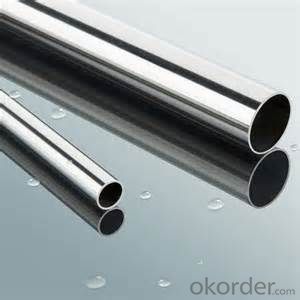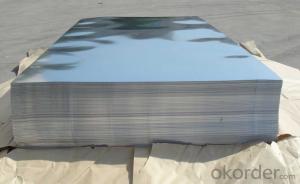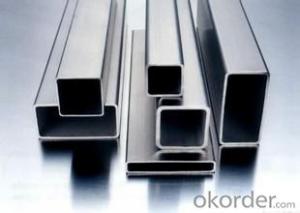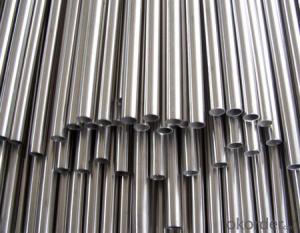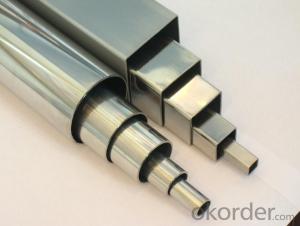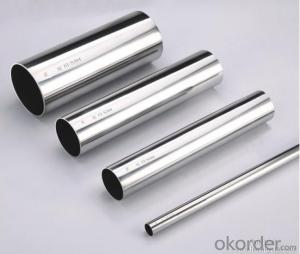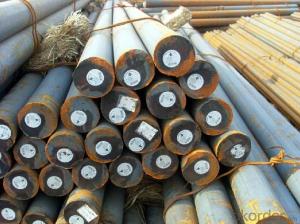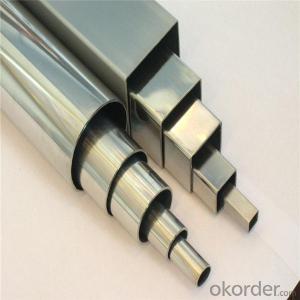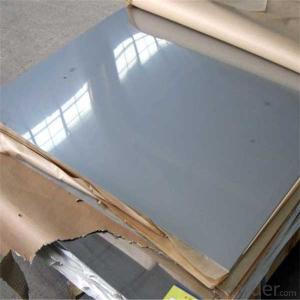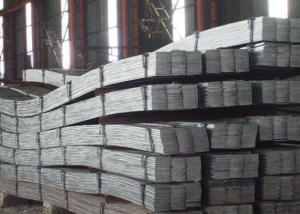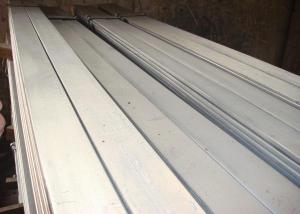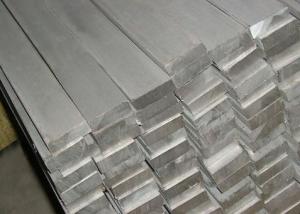STAINLESS STEEL PIPES 201 410 304 316 304L 316L pipes
- Loading Port:
- China Main Port
- Payment Terms:
- TT OR LC
- Min Order Qty:
- -
- Supply Capability:
- -
OKorder Service Pledge
OKorder Financial Service
You Might Also Like
Description:
Stainless Steel Pipe
Material:
304 321 316 310
Packing:
In bundle
MOQ:
5 TONS
Comparison of standardized steels
| EN-standard Steel no. k.h.s DIN | EN-standard Steel name | SAE grade | UNS |
|---|---|---|---|
| 1.4109 | X65CrMo14 | 440A | S44002 |
| 1.4112 | X90CrMoV18 | 440B | S44003 |
| 1.4125 | X105CrMo17 | 440C | S44004 |
| | | 440F | S44020 |
| 1.4016 | X6Cr17 | 430 | S43000 |
| 1.4408 | G-X 6 CrNiMo 18-10 | 316 | |
| 1.4512 | X6CrTi12 | 409 | S40900 |
| | | 410 | S41000 |
| 1.4310 | X10CrNi18-8 | 301 | S30100 |
| 1.4318 | X2CrNiN18-7 | 301LN | |
| 1.4307 | X2CrNi18-9 | 304L | S30403 |
| 1.4306 | X2CrNi19-11 | 304L | S30403 |
| 1.4311 | X2CrNiN18-10 | 304LN | S30453 |
| 1.4301 | X5CrNi18-10 | 304 | S30400 |
| 1.4948 | X6CrNi18-11 | 304H | S30409 |
| 1.4303 | X5CrNi18-12 | 305 | S30500 |
| | X5CrNi30-9 | 312 | |
| 1.4541 | X6CrNiTi18-10 | 321 | S32100 |
| 1.4878 | X12CrNiTi18-9 | 321H | S32109 |
| 1.4404 | X2CrNiMo17-12-2 | 316L | S31603 |
| 1.4401 | X5CrNiMo17-12-2 | 316 | S31600 |
| 1.4406 | X2CrNiMoN17-12-2 | 316LN | S31653 |
| 1.4432 | X2CrNiMo17-12-3 | 316L | S31603 |
| 1.4435 | X2CrNiMo18-14-3 | 316L | S31603 |
| 1.4436 | X3CrNiMo17-13-3 | 316 | S31600 |
| 1.4571 | X6CrNiMoTi17-12-2 | 316Ti | S31635 |
| 1.4429 | X2CrNiMoN17-13-3 | 316LN | S31653 |
| 1.4438 | X2CrNiMo18-15-4 | 317L | S31703 |
| 1.4362 | X2CrNi23-4 | 2304 | S32304 |
| 1.4462 | X2CrNiMoN22-5-3 | 2205 | S31803/S32205 |
| 1.4539 | X1NiCrMoCu25-20-5 | 904L | N08904 |
| 1.4529 | X1NiCrMoCuN25-20-7 | | N08926 |
| 1.4547 | X1CrNiMoCuN20-18-7 | 254SMO | S31254 |
Stainless steel’s resistance to corrosion and staining, low maintenance and familiar lustre make it an ideal material for many applications. There are over 150 grades of stainless steel, of which fifteen are most commonly used. The alloy is milled into coils, sheets, plates, bars, wire, and tubing to be used in cookware, cutlery, household hardware, surgical instruments, major appliances, industrial equipment (for example, in sugar refineries) and as an automotive and aerospace structural alloy and construction material in large buildings. Storage tanks and tankers used to transport orange juice and other food are often made of stainless steel, because of its corrosion resistance. This also influences its use in commercial kitchens and food processing plants, as it can be steam-cleaned and sterilized and does not need paint or other surface finishes.
Stainless steel is used for jewelry and watches with 316L being the type commonly used for such applications. It can be re-finished by any jeweler and will not oxidize or turn black.
Some firearms incorporate stainless steel components as an alternative to blued or parkerized steel. Some handgun models, such as the Smith & Wesson Model 60 and the Colt M1911 pistol, can be made entirely from stainless steel. This gives a high-luster finish similar in appearance to nickel plating. Unlike plating, the finish is not subject to flaking, peeling, wear-off from rubbing (as when repeatedly removed from a holster), or rust when scratched.
- Q: Are stainless steel pipes suitable for oil and gas applications?
- Yes, stainless steel pipes are suitable for oil and gas applications. They have excellent corrosion resistance, high strength, and can withstand high temperatures and pressures commonly found in oil and gas operations. Additionally, stainless steel pipes are easily maintainable and have a long lifespan, making them a reliable choice for such applications.
- Q: Are stainless steel pipes suitable for chemical processing?
- Yes, stainless steel pipes are highly suitable for chemical processing due to their excellent corrosion resistance and ability to withstand high temperatures and pressures. They are also hygienic, durable, and have low maintenance requirements, making them a preferred choice for handling various chemicals in industries such as pharmaceuticals, petrochemicals, food processing, and more.
- Q: 304 stainless steel, welded to seamless difference in what place?
- The grain size of the metal is related to the temperature of heat treatment and the time of keeping the same temperature. The welded stainless steel pipe and seamless stainless steel tube as the annealed grain size. If the minimum tube cold treatment, the grain size of the weld metal is smaller than the grain size, welding or grain size is the same.
- Q: Are stainless steel pipes suitable for heat exchangers?
- Yes, stainless steel pipes are suitable for heat exchangers. Stainless steel possesses excellent heat transfer properties and is resistant to corrosion and oxidation, making it an ideal material for heat exchanger applications. Its durability, high strength, and ability to withstand extreme temperatures make stainless steel pipes a reliable choice for efficient heat exchange.
- Q: What is the maximum allowable working pressure for stainless steel pipes?
- The maximum allowable working pressure for stainless steel pipes depends on various factors such as the grade of stainless steel, pipe size, wall thickness, and temperature. It is typically determined using industry standards and codes, such as ASME B31.3 for process piping. Therefore, there is no one-size-fits-all answer to this question and it is important to consult the relevant standards and engineering guidelines for accurate and specific information.
- Q: Can stainless steel pipes be insulated with polysulfone?
- Insulation of stainless steel pipes with polysulfone is indeed possible. Polysulfone, a highly durable and heat-resistant material commonly used for insulation, is suitable for this purpose. It possesses excellent thermal insulation properties, making it ideal for insulating stainless steel pipes in various applications. Moreover, polysulfone exhibits resistance to chemicals, making it a suitable choice for environments where corrosion or chemical exposure is a concern. However, it is crucial to ensure that the polysulfone insulation meets the specific requirements and temperatures of the stainless steel pipes being insulated. Seeking advice from a professional or referring to the manufacturer's guidelines can aid in determining the suitability of using polysulfone insulation for stainless steel pipes in a particular application.
- Q: What are the common corrosion issues with stainless steel pipes?
- The common corrosion issues with stainless steel pipes include pitting corrosion, crevice corrosion, and stress corrosion cracking. Pitting corrosion occurs in localized areas, leading to the formation of small pits on the pipe surface. Crevice corrosion occurs in gaps or crevices, such as at pipe joints or under deposits, leading to localized corrosion. Stress corrosion cracking is a form of corrosion caused by a combination of tensile stress and a corrosive environment, resulting in cracking of the pipe.
- Q: What are the different types of stainless steel pipe end connections?
- Various types of stainless steel pipe end connections are available, each designed to meet specific application and requirement criteria. Some commonly used types include: 1. Threaded connections: These connections have threads on the inside or outside of the pipe end, enabling it to be screwed onto another threaded fitting or pipe. Threaded connections are typically utilized in low-pressure applications. 2. Socket-weld connections: In this connection type, the pipe end is inserted into a socket or recess of a socket-weld fitting and then welded around the outer circumference of the pipe. Socket-weld connections are ideal for high-pressure applications and are renowned for their strength and reliability. 3. Butt-weld connections: Butt-weld connections involve directly welding the pipe end to another pipe or fitting. They are commonly found in high-pressure and high-temperature applications. 4. Flanged connections: These connections have a flange on the pipe end, which is bolted to a mating flange on another pipe or fitting. Flanged connections are used in applications that require easy disassembly or frequent maintenance. 5. Compression connections: Compression connections utilize a compression fitting to join the pipe ends. These connections are often employed in plumbing and gas supply systems due to their ease of installation. 6. Grooved connections: Grooved connections employ grooved couplings to join the pipe ends. These connections are frequently utilized in fire protection systems and are known for their swift and uncomplicated installation. Ultimately, the choice of stainless steel pipe end connection depends on the specific application, pressure requirements, ease of installation, and maintenance considerations. It is essential to consult with a professional or refer to industry standards to determine the most suitable connection type for your particular needs.
- Q: Can stainless steel pipes handle acidic or alkaline fluids?
- Yes, stainless steel pipes can handle both acidic and alkaline fluids. Stainless steel has excellent corrosion resistance properties, making it suitable for various applications involving these types of fluids.
- Q: Are stainless steel pipes suitable for underground sewage systems?
- Certainly, underground sewage systems benefit greatly from the use of stainless steel pipes. Renowned for their resilience, robustness, and resistance to corrosion, stainless steel pipes prove to be an optimal selection for subterranean applications. With an extended lifespan, they can endure the demanding circumstances commonly encountered in sewage systems, such as exposure to moisture, chemicals, and fluctuating temperatures. Furthermore, the smooth interior surface of stainless steel pipes serves to prevent the accumulation of debris or waste, effectively decreasing the likelihood of clogs or obstructions. In summary, stainless steel pipes present a dependable and enduring solution for underground sewage systems.
Send your message to us
STAINLESS STEEL PIPES 201 410 304 316 304L 316L pipes
- Loading Port:
- China Main Port
- Payment Terms:
- TT OR LC
- Min Order Qty:
- -
- Supply Capability:
- -
OKorder Service Pledge
OKorder Financial Service
Similar products
Hot products
Hot Searches
Related keywords

